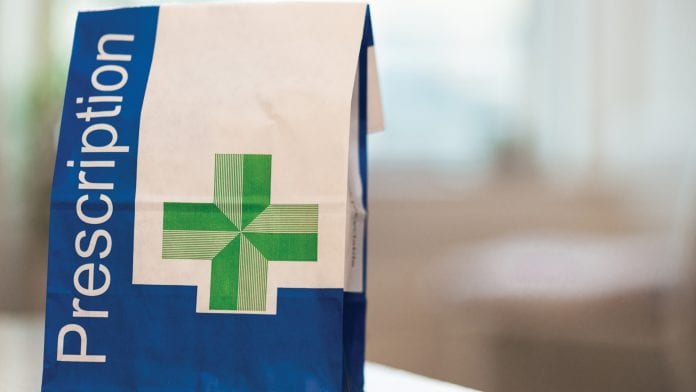
Despite changes to the law in 2018, efforts to secure access to medical cannabis in the UK continue. Here, Hannah Deacon, mother and advocate, shares her story.
Hannah Deacon made national headlines in the UK when she appealed directly to Prime Minister Theresa May for permission to give access to medical cannabis to her son Alfie, who experienced up to 500 life-threatening epileptic seizures a month prior to receiving the controversial treatment in the Netherlands. Deacon’s campaign, which saw seven-year-old Alfie become receive a permanent medical cannabis licence, helped kickstart a patient-led movement that in November 2018 resulted in specialist doctors being legally allowed to prescribe medical cannabis products to their patients.
Despite this undeniable progress, only a handful of people are believed to have received medical cannabis prescriptions since the law change, and many campaigners, including Deacon, have expressed concern that restrictive guidelines are preventing this potentially life-saving medicine from reaching the people who really need it.
Speaking to Health Europa, Deacon – who has recently taken on the role of Patient Advocacy Specialist at ECH, the group of companies behind the UK’s first medical cannabis clinics – discusses her own efforts to secure access to medical cannabis, the transformative effect it has had on Alfie, and what she’d like to see next for other patients and families in the UK.
Can you tell me a little about your experience of getting access to medical cannabis?
My son Alfie has a clustering epilepsy called PCDH19, that causes a very severe onset of seizures which can be life threatening if not treated quickly. He had seizure clusters every eight months until he was four, and that led to quite a significant learning delay – the first time he came out of hospital, for example, he was like a new-born baby. He had lost all his skills.
When he turned four, Alfie started to experience seizures every three weeks, at which point he was having up to 15 doses of intravenous steroids a month. That’s a very dangerous amount of steroids to give to anyone, let alone a small child. At age five he started to have clusters every week which always needed emergency treatment and he was receiving up to 25 doses of steroids then a month.
In December 2015, Alfie was diagnosed with PCDH19, a rare gene mutation that affects just 500 girls and nine boys in the world. His doctors told us that there was nothing they could do but continue to give Alfie steroids – but that those same steroids cause psychosis and organ failure and might one day kill him.
It was then that I decided that I needed to do something. Steroids work by suppressing the immune system, so I tried to figure out how I could replicate that action in a safer way. One thing that kept coming up in my research was cannabis. Several people in America who have children with PCDH19 have used cannabis to varying degrees of success; some of their children have been completely seizure-free for years, others have reduced their seizures significantly, and many have seen improved cognitive development.
I decided this was something I wanted to try with Alfie, but I knew it wasn’t possible in the UK. So we went to our local MP, our GP, our paediatrician and our neurologist, and we asked all of them if we could take our son abroad for treatment. They were all very supportive; in fact, our neurologist literally told us that we had no choice, because otherwise the steroids would kill Alfie let alone the seizures.
In September 2017, after nine months of fundraising, we travelled to the Netherlands, where Alfie received five months of cannabis treatment using Bedrolite full-extract CBD and Bedica THC. It took time to work, but eventually he became seizure free. We came home in February 2018, and that’s when we started our campaign with End Our Pain to make medical cannabis available in the UK. I met the Prime Minister in March 2018, and she told me that our doctors would be able to apply for a licence to prescribe cannabis – which, because cannabis is a Schedule 1 drug, was the first time that a person as opposed to a pharma company was allowed to do that. We worked alongside the government for three months to complete our application, which ran to 38 pages, and, finally, in June, Alfie was issued the first permanent medical cannabis licence in the UK, meaning his doctors would be able to prescribe him the same products that he’d been using in the Netherlands.
On that same day, the Home Secretary [Sajid Javid] announced a review into cannabis as medicine, and two permanent licences were subsequently issued to two children in Northern Ireland through the new licensing panel which the Home Secretary had set up. A few months later, the law changed and medical cannabis became available to patients on prescription, which unfortunately is when things became very difficult.
My experience was incredibly hard and incredibly traumatic. There are good people in the government who wanted to help, but there are also a lot of people who didn’t – and still don’t – understand cannabis as a medicine and so were very fearful of it and tried to block what was happening. I feel tremendously upset by what we had to go through simply to help prevent our child from having seizures, but I’m also hopeful that what we did will eventually give other patients and their families access, as well.
Many patients and patient advocates struggle to get their voices heard at the level needed to effect change. How did you manage to achieve that?
We were extremely lucky in that our local MP, Jeremy Wright, was at the time the Attorney General and is now a member of the Cabinet, so he had and still has a lot of government influence. We consulted him at the beginning of our journey and he was thankfully incredibly supportive. Our GP had been our family GP for years, so he knew us and he knew what cost Alfie’s condition was having not only on his life but also on the NHS – almost £200,000 (~€227,000) a year. Our local paediatrician was with us every time Alfie went into hospital, which, in the years before we went to the Netherlands, was close to once a week.
These people were living the hell we were going through with us, so I think that’s why they were ultimately so supportive of what we were trying to do – because they knew what Alfie was up against and they could see how well he became thanks to the cannabis. We were also lucky to have Professor Mike Barnes leading our licensing team. He did so much for us for absolutely nothing, because he felt so strongly that what he was doing was the right thing. If we hadn’t had these amazing, supportive, receptive people around us, we might not have achieved what we did.
Now, the problem is fear. A lot of doctors have read the prescription guidelines published by the British Paediatric Neurology Association (BPNA) and the Royal College of Physicians (RCP), and it’s put the fear of God into them. They’re worried that they can’t prescribe cannabis without breaching guidelines, something doctors are very reluctant to do. That’s why the law change has been so frustrating and disappointing.
Why do you think it is that legalisation has not led to the level of access expected?
The Home Secretary handled things very quickly and very well, but the government did a bad job of managing expectations and there seemed to be very little joined-up thinking between the Home Office and the Department of Health and Social Care (DHSC).
Thousands of families are living with children with severe epilepsy, and the law change gave them all hope only for the DHSC to take it almost immediately away again by demanding that more evidence is gathered before cannabis can be prescribed. I believe that trials need to be done, but doctors are asking for randomised controlled trials (RCTs) of full-extract cannabis, which simply isn’t possible. They need to accept that observational trials are relevant here.
The problem is that doctors in the UK simply do not understand cannabis as medicine. That’s why I have urged senior clinicians here to engage with colleagues in Canada and Israel who can teach them how it works and why. I also tell them about The Academy of Medical Cannabis which is a fantastic online training program so clinicians can become empowered through education. We must overcome that ignorance if anything is going to change.
Ultimately, if medical cannabis is good enough for Alfie and good enough to be prescribed privately, then it must be good enough for everyone. Otherwise, the DHSC is saying that what they have allowed my child to be given is dangerous. I know it isn’t and they know it isn’t. My son was having 500 seizures a month and now he has maybe six in a year – that is evidence in itself. Observational trials may be anecdotal, but at some point anecdotal must become fact.
Doctors and the government need to be more flexible with the trials and they need to start asking whether certain numbers of people who have tried certain numbers of medications can have access to medical cannabis. Because these people are vulnerable and they need help, and it’s the government’s job and it’s the doctors’ job to provide that.
What would you like to see next? Are you hopeful that the NICE guidelines due out in October will encourage greater prescribing?
I’m not hopeful about what the NICE guidelines will say because, again, they’ll be looking at what RCTs have been done, which isn’t necessarily relevant when it comes to medical cannabis. I think they’ll likely advise that there is not enough evidence to justify prescribing.
What I would like to see is education for doctors, urgently, so that they understand how cannabis works, why it works and how it can be prescribed. That way, doctors would become empowered to – at the very least – know what they’re talking about when patients or families come to them. At the moment, most parents know more about cannabis than doctors do. Alongside Professor Mike Barnes and various other doctors, I’m a director of the Medical Cannabis Clinicians’ Society, which works to make education available to doctors through training programmes, research and events. Education is the only way that we will be able to move things forward.
I feel very confident that cannabis will be a mainstream medicine in three to five years’ time. But families with very sick children like the ones I work with can’t wait that long. Something needs to change now.
What will your new role as Patient Advocacy Specialist at ECH involve, and what attracted you to this particular organisation?
What drew me to ECH most of all is that I truly believe that the team behind it wants to help people. I feel as though that has become my calling in life, too, to help people access medical cannabis. My child was so ill, and I was living in such a desperate, traumatised, isolated state, but now I have the joy of watching Alfie go to school every day, go swimming, go horse riding. I can take him to the park and watch him play football with his friends. I never thought those things would be possible, and I am grateful for them every single day. That is what medical cannabis has done for us.
I’m not saying it’s a miracle drug. It won’t work the same for everyone, but families should at least be given the chance that I’ve had to see if it works for them. Through my work with End Our Pain, I work with 18 families who are desperately suffering because they don’t have access to it. I’m committed to being their voice and to making sure that companies like ECH understand how they feel and what their needs are so that we can really change things for the better.
Hannah Deacon
Patient Advocacy Specialist
ECH
Tweet @ech_ltd
www.europeancannabisholdings.com
Please note, this article will appear in issue 10 of Health Europa Quarterly, which is available to read now.









